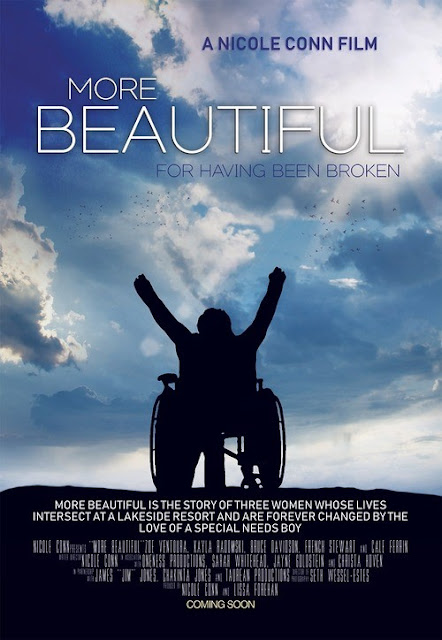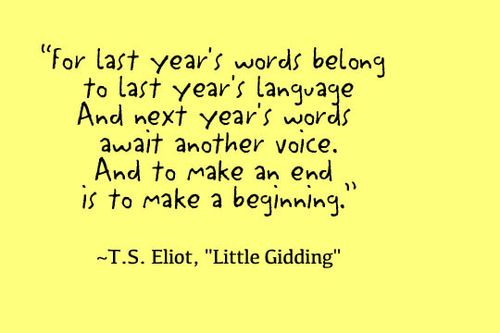"The universe is made of stories, not of atoms."
—Muriel Rukeyser
____________________________
Battleship Pretension: The Other Side of The Meg
Check out this great discussion about the writing in The MEG here.
Gordy Hoffman of BlueCat Screenwriting Contest sits down with the cinephiles and hosts of Battleship Pretension to discuss the importance of subverting audience expectations and why great screenwriting is not above films like The Meg.
“If you generate emotion and an abundance of it, it’s going to generate revenue. Audiences have a heart. They want blood. They want to have something to be worried about.” – Gordy Hoffman
Check out this great discussion about The MEG
Without giving away spoilers, Gordy advocates that the 2018 summer shark flick, The Meg, delivers genuine peril. Modern blockbusters tend to get more spotlight and better ratings due to smart marketing and star ensembles, but does star quality guarantee high stakes and an emotional story? Not always.
Though The Meg might not be considered a “prestige picture” by most Hollywood critics, Gordy and the hosts of Battleship Pretension applaud the film for engaging the audience with unexpected turns and a sense of lost hope.
“Blindside them with a source of conflict that seems impossible to overcome. That sense that all hope is lost. You want to get the audience in that place – that we have NO IDEA how they’re going to get out. That’s screenwriting. The characters are in trouble and you care that they’re in trouble.”
Nicole Conn's More Beautiful Selected as Semi-Finalist for Best Picture, Los Angeles Independent Film Festival
We're delighted to offer our Congratulations to Nicole Conn on being selected as Semi-Finalist for Best Picture (More Beautiful), Female Filmmaker and Best Actor Cale Ferrin from Los Angeles Independent Film Festival Awards.
 |
| Nicole Conn Writer/Director |
 |
| Cale Ferrin |
The Disastrous Decline in Author Incomes Isn’t Just Amazon’s Fault
The bookselling behemoth is making life harder for writers, but so is the public perception that art doesn’t need to be paid for

There is a scene in the film Moulin Rouge in which a crowd of top hat-wearing men belt out the Nirvana song “Smells Like Teen Spirit” as they riotously descend upon the famous French hall of can-can dancers. “Here we are now! Entertain us!” the suited patrons roar as they greedily reach out for the amusements around them. It’s a high-energy, campy scene that director Baz Luhrmann overlays with a sinister message about the power discrepancy between entertainers and the men who pay them. This scene has been on my mind lately, both in the wake of the #MeToo movement and the horrific stories we’ve heard from actresses and other women in the entertainment industry, and again on Monday, when the Authors Guild published its 2018 Author Income Survey.
This was the largest survey ever conducted of writing-related earnings by American authors. It tallied the responses of 5,067 authors, including those who are traditionally, hybrid, and self-published, and found that the median income from writing has dropped 42% from 2009, landing at a paltry $6,080. The other findings are similarly bleak: revenue from books has dropped an additional 21%, to $3,100, meaning it’s impossible to make a living from writing books alone. Most writers are cobbling together various sources of income like teaching or speaking engagements, yet the median income for full-time authors for all writing-related activities still only reached $20,300, which is well below the American poverty line for a family of three. Writers of literary fiction felt the greatest decline in book earnings, down 43% since 2013.
Most writers are cobbling together various sources of income like teaching or speaking engagements, yet the median income for full-time authors still only reached $20,300.
The Authors Guild has a pretty clear idea of what’s behind this disturbing trend, namely the rise of Amazon, which severely cuts publishers’ margins on book sales. Authors ultimately shoulder the cost because publishers offset their losses by giving out smaller author advances and royalties. The platform’s resale market also means that, within months of publication, books are being resold as “like new” or “lightly used,” a scenario in which no new money goes to the actual author of the book. The Authors Guild acknowledges that Amazon isn’t the only place where authors are losing out, but the culprits are of a kind: electronic platforms like Google Books and Open Library claim fair use rights in order to offer classrooms products without paying authors royalties. This is problematic because those royalties, a kind of pay-to-play model of compensation, are how artists have made their money ever since it went out of fashion to have a patron who could support your entire career.
This year’s Authors Guild Survey is right to focus on the harm Amazon does to working writers; personally, I’ve made my 2019 resolution to put my money where my mouth is and buy all my books at local, independent bookstores. But the survey results made me wonder if that would be enough—if it’s possible, in the age of the Internet, to reverse the belief that content should mostly be free. By content I do mean to encompass all ends of the artistic spectrum, that ill-defined mass of high and low entertainment and art and news that rubs up against each other on the web in a way that makes it more difficult to separate out, and perhaps less meaningful to do so. Basically, people are insatiable for this panoply of words and images; they want mass input. If you do a Google search for “apple pie recipe,” for example, the top results include both Pillsbury’s website and the personal blog of a home cook. The point isn’t that there is anything wrong with the latter, it’s that discernment has taken a backseat to access; we want all the apple pie recipes, all the videos and photographs and articles and books. We are here now. Entertain us.
Here’s What People Don’t Get About Writing as a Job
A Twitter thread asking “what does the public misunderstand about your profession?” turns up a lot of writing wisdom
Like the charging patrons of Moulin Rouge, we see the entertainment around us and we want it now. Worse, we feel entitled to it. That we feel entitled to be entertained is, I think, symptomatic of how our attitude towards art and literature has shifted. Those things used to be much more difficult to obtain; you couldn’t flip through Monets or read some Robert Frost poems while standing in line at the grocery store, and as a result we did what we do with many rare things — we intellectualized them and tried to ascribe them meaning. This had its own flaws, of course. In her 1966 essay “Against Interpretation,” Susan Sontag argued that modern critics were so focused on examining the content and extrapolating the meaning of a piece of art that we were overlooking the thing itself. Our issue now isn’t that we’re overanalyzing art; it’s that it’s all so familiar that, instead of looking for its meaning, we are encouraged to “connect” with it, which is to say, to see ourselves in the work. But if the hallmark of a great work is that we can inhabit it and make it our own, what does that say about how we view the work’s relationship with its creator?
People have always felt a sort of ownership over art, and that’s actually good. It’s why you keep a book on your shelf and return to it, it’s why you hang a picture on your wall that speaks to you. But when this gets out of hand and you mistake access or a personal connection with your rights, as happens so often in our Internet age, it leads to a dangerous sense of entitlement. That’s why readers feel empowered to complain, directly to the creator, that a book or show doesn’t have absolutely everything they want: the romantic pairing they’d hoped for, the language they find most friendly, the ending they desired. And it’s also why, for instance, the last Harry Potter book leaked on the internet before it was officially published: fans saw the book as something they were owed, not the product of labor that deserved compensation. Not that J.K. Rowling needs more money—but she, and all authors, deserve to have their work recognized as work.
Our issue now isn’t that we’re overanalyzing art; it’s that it’s all so familiar that, instead of looking for its meaning, we are encouraged to “connect” with it, which is to say, to see ourselves in the work.
Consumers hold a pernicious power, so this trend towards free content won’t reverse itself unless we want it to. This is a sad thing, and we will all be much worse off if we can only hear stories from people who can afford to write. Nicholas Weinstock, a Guild Council member, said: “Reducing the monetary incentive for potential book authors even to enter the field means that there will be less for future generations to read: fewer voices, fewer stories, less representation of the kind of human expression than runs deeper and requires and rewards more brain power than the nearest bingeable series on Netflix or Amazon or GIF on your phone.” Maybe we will all get what we think we’re entitled to — free art — but what kind of art will that be?
Read more

There is a scene in the film Moulin Rouge in which a crowd of top hat-wearing men belt out the Nirvana song “Smells Like Teen Spirit” as they riotously descend upon the famous French hall of can-can dancers. “Here we are now! Entertain us!” the suited patrons roar as they greedily reach out for the amusements around them. It’s a high-energy, campy scene that director Baz Luhrmann overlays with a sinister message about the power discrepancy between entertainers and the men who pay them. This scene has been on my mind lately, both in the wake of the #MeToo movement and the horrific stories we’ve heard from actresses and other women in the entertainment industry, and again on Monday, when the Authors Guild published its 2018 Author Income Survey.
This was the largest survey ever conducted of writing-related earnings by American authors. It tallied the responses of 5,067 authors, including those who are traditionally, hybrid, and self-published, and found that the median income from writing has dropped 42% from 2009, landing at a paltry $6,080. The other findings are similarly bleak: revenue from books has dropped an additional 21%, to $3,100, meaning it’s impossible to make a living from writing books alone. Most writers are cobbling together various sources of income like teaching or speaking engagements, yet the median income for full-time authors for all writing-related activities still only reached $20,300, which is well below the American poverty line for a family of three. Writers of literary fiction felt the greatest decline in book earnings, down 43% since 2013.
Most writers are cobbling together various sources of income like teaching or speaking engagements, yet the median income for full-time authors still only reached $20,300.
The Authors Guild has a pretty clear idea of what’s behind this disturbing trend, namely the rise of Amazon, which severely cuts publishers’ margins on book sales. Authors ultimately shoulder the cost because publishers offset their losses by giving out smaller author advances and royalties. The platform’s resale market also means that, within months of publication, books are being resold as “like new” or “lightly used,” a scenario in which no new money goes to the actual author of the book. The Authors Guild acknowledges that Amazon isn’t the only place where authors are losing out, but the culprits are of a kind: electronic platforms like Google Books and Open Library claim fair use rights in order to offer classrooms products without paying authors royalties. This is problematic because those royalties, a kind of pay-to-play model of compensation, are how artists have made their money ever since it went out of fashion to have a patron who could support your entire career.
This year’s Authors Guild Survey is right to focus on the harm Amazon does to working writers; personally, I’ve made my 2019 resolution to put my money where my mouth is and buy all my books at local, independent bookstores. But the survey results made me wonder if that would be enough—if it’s possible, in the age of the Internet, to reverse the belief that content should mostly be free. By content I do mean to encompass all ends of the artistic spectrum, that ill-defined mass of high and low entertainment and art and news that rubs up against each other on the web in a way that makes it more difficult to separate out, and perhaps less meaningful to do so. Basically, people are insatiable for this panoply of words and images; they want mass input. If you do a Google search for “apple pie recipe,” for example, the top results include both Pillsbury’s website and the personal blog of a home cook. The point isn’t that there is anything wrong with the latter, it’s that discernment has taken a backseat to access; we want all the apple pie recipes, all the videos and photographs and articles and books. We are here now. Entertain us.
Here’s What People Don’t Get About Writing as a Job
A Twitter thread asking “what does the public misunderstand about your profession?” turns up a lot of writing wisdom
Like the charging patrons of Moulin Rouge, we see the entertainment around us and we want it now. Worse, we feel entitled to it. That we feel entitled to be entertained is, I think, symptomatic of how our attitude towards art and literature has shifted. Those things used to be much more difficult to obtain; you couldn’t flip through Monets or read some Robert Frost poems while standing in line at the grocery store, and as a result we did what we do with many rare things — we intellectualized them and tried to ascribe them meaning. This had its own flaws, of course. In her 1966 essay “Against Interpretation,” Susan Sontag argued that modern critics were so focused on examining the content and extrapolating the meaning of a piece of art that we were overlooking the thing itself. Our issue now isn’t that we’re overanalyzing art; it’s that it’s all so familiar that, instead of looking for its meaning, we are encouraged to “connect” with it, which is to say, to see ourselves in the work. But if the hallmark of a great work is that we can inhabit it and make it our own, what does that say about how we view the work’s relationship with its creator?
People have always felt a sort of ownership over art, and that’s actually good. It’s why you keep a book on your shelf and return to it, it’s why you hang a picture on your wall that speaks to you. But when this gets out of hand and you mistake access or a personal connection with your rights, as happens so often in our Internet age, it leads to a dangerous sense of entitlement. That’s why readers feel empowered to complain, directly to the creator, that a book or show doesn’t have absolutely everything they want: the romantic pairing they’d hoped for, the language they find most friendly, the ending they desired. And it’s also why, for instance, the last Harry Potter book leaked on the internet before it was officially published: fans saw the book as something they were owed, not the product of labor that deserved compensation. Not that J.K. Rowling needs more money—but she, and all authors, deserve to have their work recognized as work.
Our issue now isn’t that we’re overanalyzing art; it’s that it’s all so familiar that, instead of looking for its meaning, we are encouraged to “connect” with it, which is to say, to see ourselves in the work.
Consumers hold a pernicious power, so this trend towards free content won’t reverse itself unless we want it to. This is a sad thing, and we will all be much worse off if we can only hear stories from people who can afford to write. Nicholas Weinstock, a Guild Council member, said: “Reducing the monetary incentive for potential book authors even to enter the field means that there will be less for future generations to read: fewer voices, fewer stories, less representation of the kind of human expression than runs deeper and requires and rewards more brain power than the nearest bingeable series on Netflix or Amazon or GIF on your phone.” Maybe we will all get what we think we’re entitled to — free art — but what kind of art will that be?
Read more
Carrie V Mullins
Writer: fiction, food, travel, culture @carrievmullins
Dr. Warren Woodruff's Protege Angelica Hale Does it Again!
Author, Musicologist Dr. Warren Woodruff's protege Angelica Hale does it again! Receives America's Got Talent Champions Golden Buzzer!
People who read live longer than those who don’t, Yale researchers say
The benefits of reading should not be understated, even when it comes to living a longer life. A new study finds that reading books in particular returns cognitive gains that increase longevity.
Bookworms rejoice! A new study in the journal Social Science and Medicine just discovered that people who read books live longer than people who don't.
Researchers at Yale University asked 3,635 participants over 50 years-old about their reading habits. From that data, they split the cohort into 3 groups: non-readers, people who read less than 3.5 hours per week, and people who read more than 3.5 hours per week. The researchers followed up with each group for 12 years. The people who read the most were college-educated women in the higher-income group.
Over the course of the study, the researchers consistently found that both groups of readers lived longer than the non-readers. The readers who read over 3.5 hours a week lived a full 23 months longer than the people who didn't read at all. That extended lifespan applied to all reading participants, regardless of "gender, wealth, education or health" factors, the study explains. That's a 20% reduction in mortality created by a sedentary activity. That's a big deal, and a very easy fix for improving quality of life in anyone over 50.

Credit: Social Science and Medicine
The results get better. “Compared to non-book readers," the authors continue, “book readers had a 4-month survival advantage," at the age when 20% of their peers passed away. “Book readers also experienced a 20% reduction in risk of mortality over the 12 years of follow up compared to non-book readers." The authors continue:
"Further, our analyses demonstrated that any level of book reading gave a significantly stronger survival advantage than reading periodicals. This is a novel finding, as previous studies did not compare types of reading material; it indicates that book reading rather than reading in general is driving a survival advantage."
The reason books had greater gains than periodicals is because book reading involves more cognitive faculties. The readers didn't begin with higher cognitive faculties than the non-readers; they simply engaged in the activity of reading, which heightened those faculties. “This finding suggests that reading books provide a survival advantage due to the immersive nature that helps maintain cognitive status," said the study's authors.
As any book lover knows, reading involves two major cognitive processes: deep reading, and emotional connection. Deep reading is a slow process where the reader engages with the book and seeks to understand it within its own context and within the context of the outside world. Emotional connection is where the reader empathizes with the characters, and that promotes social perception and emotional intelligence. Those cognitive processes were cited by the Yale team and used as markers for this study. While they apparently offer a survival advantage, “better health behaviors and reduced stress may explain this process [as well]," according to the study. Still, those cognitive benefits are real.
Start Reading Dennis Palumbo's Head Wounds…
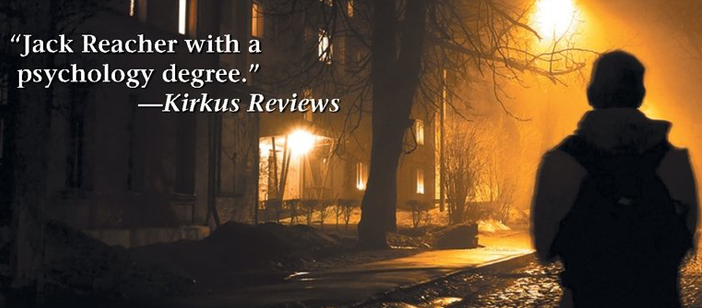
Formerly a Hollywood screenwriter (of My Favorite Year, Welcome Back, Kotter, and more), Dennis Palumbo is a licensed psychotherapist and author. His mystery fiction has appeared in Ellery Queen’s Mystery Magazine, The Strand and elsewhere, and is collected in From Crime to Crime (Tallfellow Press). His series of mystery thrillers (Mirror Image, Fever Dream, Night Terrors, Phantom Limb, and the latest — excerpted here — Head Wounds) all feature Daniel Rinaldi, a psychologist and trauma expert who consults with the Pittsburgh Police.
From the publisher: “Psychologist Dr. Daniel Rinaldi consults with the Pittsburgh Police. His specialty is treating victims of violent crime – those who’ve survived an armed robbery, kidnapping, or sexual assault, but whose traumatic experience still haunts them. Head Wounds picks up where Rinaldi’s investigation in Phantom Limb left off, turning the tables on him as he, himself, becomes the target of a vicious killer.”
Praise for Dennis Palumbo’s Daniel Rinaldi Series:
“Accomplished writer Dennis Palumbo calls his latest novel Head Wounds and the grim title should
serve as a warning. This psychological thriller has some fine language and a strong narrative pull that keeps the pages turning, but the series of crimes that occur are unnerving…People in the story wear Pitt Panthers and Steelers sweatshirts, drive on the parkway, and get their news from KDKA. Mr. Palumbo often does more than just mention Pittsburgh landmarks; he characterizes the city in both positive and negative ways…As Head Wounds rolls to its clever, crazy gothic conclusion, no one could accuse Mr. Palumbo of being flat. This is the fifth book in his Daniel Rinaldi series and most readers will hope Dan lives to see a sixth.”
— Pittsburgh Post-Gazette
“Head Wounds delivers relentless action toward a climax as vivid and harrowing as anything I’ve ever read.”
— Joseph Finder, New York Times best-selling author of The Switch
“The character of psychologist and trauma expert Daniel Rinaldi gives great heart to this story and elevates it to novelistic heights.”
— John Lescroart, New York Times best-selling author of Damage
“Lovers of noir will enjoy Dan Rinaldi’s fast-paced adventures. Rinaldi, an empathic therapist, is on call to the Pittsburgh police. He needs every ounce of his Golden Glove skills to survive the violent world of Pennsylvania politics.”
— Sara Paretsky, Mystery Writers of America Grand Master, author, V.I. Warshawski novels
“A gripping thriller, chock full of the desired twists and cliffhangers, with the added layer and intriguing access of a therapist narrator/detective. A page turner!”
— Aimee Bender, New York Times best-selling author of An Invisible Sign of My Own
ONE
Miles Davis saved my life.
I was sitting on the couch in my front room, re-reading the three-inch-thick dossier, listening to Davis’ seminal album with his New Quintet. I’d slid the CD into the squat disc player minutes before, right after I’d poured myself a second Jack Daniels. Neat.
It was sometime after nine PM. My broad picture window looking out on Grandview Avenue reflected an opaque darkness chilled by an earlier spring rain. As usual lately, I’d forgotten to draw the heavy drapes when I came home from work. Sometimes I even forgot to eat.
My only task, these past few nights, was to put the dossier on my lap and slowly peruse its many pages. To read yet again the police detectives’ statements, peer at the crime scene photos, review the Medical Examiner’s report. The hard-backed binder had become an important but cryptic artifact, the potential key to a mystery that I’d long accepted as buried in the past.
“Okay,” I said aloud, to an empty room. An empty house. “Tonight I find it. Whatever the hell it is.”
The key to a mystery. At least that’s what he’d claimed it was, the man who told me about it. Who believed that hidden in the dossier’s pages was an overlooked or ignored piece of evidence proving that my wife’s death almost a dozen years ago hadn’t been what it seemed. That the gunfire that ended Barbara’s life was not the lethal result of a mugging gone wrong.
It was murder.
And the proof was in this extensive dossier that same man had once prepared at a wealthy new patient’s request. Before she’d consider entering therapy. A dossier on me.
He told me all this over a week ago, as I crouched by his blood-soaked body, staring in disbelief at the man’s stricken face. Moments before, he’d saved that patient’s life by stepping in front of a killer’s gun, taking the bullet meant for her. Although the shooter had been quickly subdued, it was too late for the wounded man.
Gasping in pain from the slug lodged in his gut, he urged me to go to his office and find his copy of the dossier. Though within moments his voice had fallen to a croaked, desperate whisper as he struggled to speak, to find words. Which he somehow managed to do, right before he died in my arms.
I winced now at the memory and swallowed half the whiskey, barely aware of the artful harmonics flowing from the CD player atop the nearby bureau. Denied even the meager solace I usually derived most nights from the soulful, insistent music.
Truth is, I was still pretty scarred, both physically and psychologically, from the events of the past few weeks. The kidnapping of that troubled new patient. The shocking violence and sudden, unexpected deaths that followed. The final showdown with her captors. And, throughout, my own head-strong, perhaps foolish involvement.
God knows, I still had the bruises to prove it.
I sighed heavily. My eyes, tired after a long day seeing patients, squinted down at the blurred, Xeroxed documents arranged chronologically in the ringed binder. Trying to make sense of what I was seeing. Especially the handwritten notes of the investigating detectives. As though, in the soft amber light of the table lamp, the hurriedly-scrawled words had become meaningless cyphers.
Not that the police reports made up the bulk of the binder’s contents. This painstakingly-prepared dossier was literally the paper trail of my entire life. From birth certificate to University of Pittsburgh psychology degree, from my clinical experience to favorite bar, hospital affiliations to tax returns. My family and its many sorrows. My marriage to the former Barbara Camden, also a Ph.D, including our brief stint in couples counseling. My friends and colleagues, my private practice, my work as a consultant to the Pittsburgh Police. All my forty-plus years condensed into a stack of documents, copied records, data printed off the Internet. The gains and losses, both professionally and personally, that made up my life.
But it was the material pertaining to Barbara’s death that drew my repeated, almost obsessive interest. Including the personal details that were compiled by the police at the start of their investigation. Her own family’s history, her noted career as a linguistics professor at Pitt, her marriage to me not long after we’d first met as graduate students. Then came the forensics from the crime scene, the futile canvas of the surrounding area. Leads that went nowhere, anonymous tips that never panned out. And finally their interview with me a month after the mugging, as I lay in the hospital bed, recovering from my own gunshot wound.
Though there hadn’t been much I could tell them. Barbara and I had been approached coming out of a restaurant at the Point by an armed thug in a hoodie. He was about my size, I vaguely recalled, though his face was almost totally obscured by the peaked hood and the black of night. A chilled darkness barely broken by the restaurant’s soft-hued exterior lamps and a single light canopied over the valet parking kiosk.
It had all happened in what seemed like moments. The guy grabbed for Barbara’s purse, she resisted, and I tried to intervene. In the struggle, three shots went off, two finding my wife. I took the third to my head, putting me on the ground. Then the mugger ran off, his echoing footsteps the last thing I remembered before passing out…
He was never found.
Someone inside the restaurant called 911. But by the time the police and an ambulance arrived, Barbara had died at the scene. While I, for some reason, didn’t.
Though I still bear the scar from the bullet that had pierced my skull, evidence of my unlikely survival. My inexplicable, unearned luck.
I guess I’ve been trying to earn it ever since.
* * *
Despite the knot tightening in my stomach, I threw back the rest of the whiskey. It tasted as sour as I felt. Whatever clue I was supposed to discover in this dossier still eluded me, after a half-dozen careful readings on as many nights. Unless the dying man had been wrong, and there was nothing to find.
I was just about to close the binder for the night when an old favorite track, “Just Squeeze Me,” came from the CD player’s speakers. Miles on trumpet, Coltrane on sax. Heart-stopping, elegant and perfect.
Except the volume wasn’t loud enough. So, favoring my still-bruised ribs, I levered myself up from the couch and went over to where the player sat on the bureau.
I never made it.
I’d just bent to turn up the volume–
Suddenly, the front window shattered behind me. A booming explosion of glass, jagged shards cascading into the room.
Frozen with shock, I felt the rush of the bullet as it whistled past me, just over my shoulder. Missing me by inches. Embedding itself in the wall.
I threw myself to the floor. Sprawled there, unmoving. Conscious only of a dull roaring in my skull. The insistent reverberation of the gunshot.
As I waited, heart thudding in my chest, for the sound of another shot. Another implosion of broken glass.
A sound that never came.
Copyright © Dennis Palumbo. This excerpt is published here courtesy of the author and should not be reprinted without permission.
Read more
Will there be a sequel to The Meg? Producer Lorenzo Di Bonaventura provides an update
Lorenzo Di Bonaventura, the producer of The Meg, has confirmed plans for a follow-up to the nautical blockbuster, which proved to be a smash-hit.
“It will happen,” Di Bonaventura tells Metro when quizzed about the chances of a sequel to The Meg. But obviously the follow-up is still quite a bit away, as the Bumblebee producer adds, “We’re still trying to figure out what that is.”
Will Jason Statham return for The Meg 2?
It is hardly a surprise that we’re going to see The Meg 2. While it only scored 45% on Rotten Tomatoes, The Meg went on to gross over $530 million at the box office, as it proved to be especially popular overseas, where it took in just under $385 million internationally.
Back in October, Catherine Xujun Ying, the executive producer behind The Meg, let the cat out of the bag about the sequel, telling Deadline, “It’s still in the very early stages, but we’re working on it. We’re trying to keep it secret at this time.”
Statham had already stated his intent to return for another entry to the franchise, telling Entertainment Weekly ahead of The Meg’s release, "I think it's like anything in this day and age — if it makes money, there's obviously an appetite to make more money."
"And if it doesn't do well, they'll soon sweep it under the carpet. But that's the way Hollywood works.”
Steve Allen, the writer behind the 1997 novel that The Meg is based on, which has 7 follow-ups itself, believes that there's plenty of material for more than one follow-up.
He told Metro around its release,”My feeling has always been that this is a billion dollar franchise if it was done right.”
“But to be done right you had to get the shark right, get the cast right, get the tone right. And Warner Bros. have nailed it completely. The producers have nailed it.”
Read more
Book sales are up this year over last year, and physical books are thriving

It’s a tale as old as time, or, at least, the internet: None of us are reading any more, the physical book is dead, Amazon has killed the independent bookstore, and it’s all only going to get worse. But this year, the story looks like just that—a fiction. We are buying books—especially the kind with physical pages—and we’re doing so, increasingly, in well-loved indie bookstores.
In the UK, the Guardian reports, Nielsen BookScan recored year-on-year book sale growth of 22 million pounds ($28 million). It’s likely that 2018 will top 2016’s total sales of 1.59 billion pounds, too, with booksellers on both sides of the Atlantic noting an anecdotal uptick in sales and browsing customers. It’s been good news for British book chains—the country’s largest bookseller, Waterstones, made its first profit since the 2008 financial crisis—and for independent bookshops, too: this year was the first since the advent of Amazon where the number of stores actually went up, rather than down.
In the United States, the news is even rosier for indies: the number of independent bookstores grew by 35 percent between 2009 and 2015, while sales of physical books have increased every year since 2013. (For big booksellers, it’s been trickier: Barnes & Noble’s annual report told harrowing tales of store sales down 5.4% from 2017, with total sales in decline since 2014.)
We’re buying books, and we’re favoring the kind you can borrow, lend, or drop in the bath: In 2017, print book sales were up 10.8% from four years earlier. (Between 2016 and 2017, however, e-book sales actually dropped 10 percent.) In October of this year, book sales were at $699 million, up by $50 million from a year earlier.
Perhaps surprisingly, Vox’s The Goods attributes this growth to our phones. By reading off-line, writes Nisha Chittal, we’re trying to mediate our screen times, driving up demand for paper books. On the other hand, when we are on our phones, we’d like everyone to know how well-read we are, usually via virtue-signaling #100booksin2018 Instagram posts—and that means buying books to show off. “All this bookstagramming has led to a thriving space for book lovers on social media,” Chittal writes, “and that’s been a good thing for independent bookstores too — because it plays to their key strength: creating community.” Booksellers are growing wise to our swipe-happy ways, and making sure their wares and whereabouts have a home and community online, where they’re lodged firmly in our minds and feeds.
Book sales may never recover to their pre-internet highs, but it’s encouraging news for aspiring novelists, anxious booksellers, and voracious readers alike.
Read more
Nicole Conn's New Film More Beautiful Coming Soon
 |
| writer/director Nicole Conn |
FEATURING
Cale Ferrin whose extraordinary breakout performance in this film will touch everyone’s heart.
 |
| Cale Ferrin |
 |
| with and Kayla Radomski |
Cale's portrayal of “Freddie” is not only brave and raw but will really help people to understand what a child with Special Needs goes through on a daily basis. And congrats to Cale who is currently working on a Hulu series in Toronto.
 |
| Cale Ferrin and Zoe Ventoura |
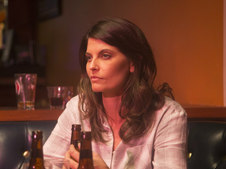 |
| Zoe Ventoura |
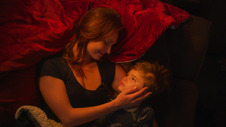 |
| Kayla Radomski and Cale Ferrin |
The entire cast is stellar – headed up by Zoe Ventoura and Kayla Radomski - both of their journeys’ are relatable on so many levels.
And the supporting cast is pretty darn remarkable for a film this size: Bruce Davidson, French Stewart, Brooke Elliott, Harley Jane Kozak, Gaby Christian, Kay Lenz and my daughter Gabrielle Baba-Conn.
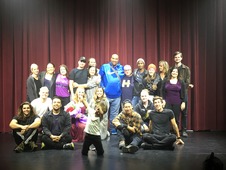 |
| It's a wrap!!! |
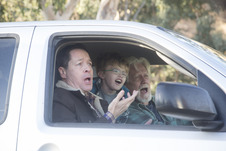 |
| French Stewart, Cale Ferrin, Bruce Davidson |
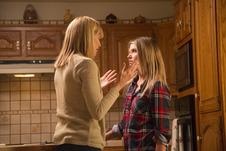 |
| Harley Jane Kozak and Gaby Christian |
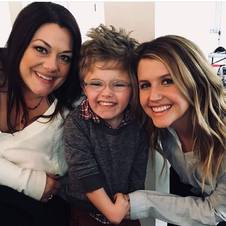 |
| Brooke Elliott, Cale Ferrin and Gaby Christian |
Guest Post: BILL SHAKESPEARE: AN AGENT’S DREAM CLIENT by Nancy Nigrosh
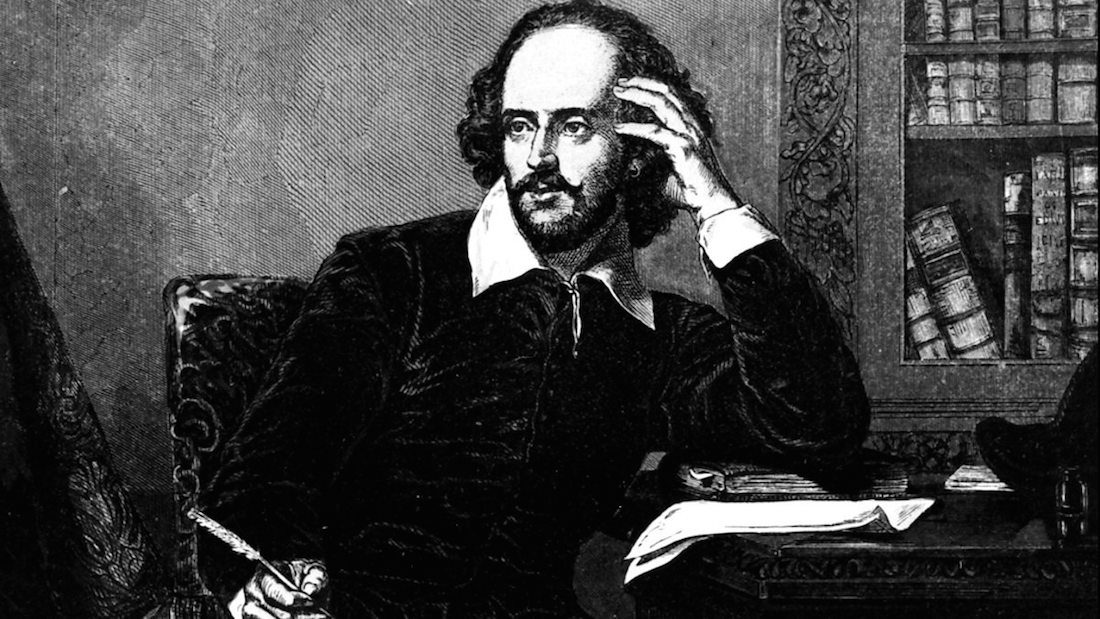
Many writers often mistake writing as a source of personal identity, instead of a job, a business or a product.
The original Greek dramatists celebrated the gods in their work, but they had no issue claiming ownership as authors. They were successfully self-promoting to the extent their work is still performed and still attracting profitable enterprise. If the Greeks are too distant a reference, let’s take a look at the king of all the writing gods: Bill Shakespeare.
He is unmistakably the consummate businessman who founded a repertory company, secured patrons, erected a theatre, and promoted its product while writing some of the world’s greatest plays as a line item alongside all the rest. He is the credited writer of over 1,000 screenplays. At this very moment films based on his work are being prepped, while countless theatrical productions of his work are being performed all over the world.
 Nancy Nigrosh spent 23 years as a top Hollywood agent representing world-class directors, writers and authors. Now she’s a writing coach, who offers insider knowledge about the process of how to attract an agent. She is an MFA alum of UCLA’s Theater, Film & Television Program, and serves as a judge for UCLA’s Annual Master Screenwriting Competition. She also holds an MA in Education and two Teaching Credentials from Antioch University. She teaches at UCLA Extension Writers’ Program, and frequently contributes to Indiewire. She’s on the Board of the Los Angeles Historic Theater Foundation and an Advisory Board member of BookWorks a worldwide Self-Publishers Association in partnership with Publishers Weekly.
Nancy Nigrosh spent 23 years as a top Hollywood agent representing world-class directors, writers and authors. Now she’s a writing coach, who offers insider knowledge about the process of how to attract an agent. She is an MFA alum of UCLA’s Theater, Film & Television Program, and serves as a judge for UCLA’s Annual Master Screenwriting Competition. She also holds an MA in Education and two Teaching Credentials from Antioch University. She teaches at UCLA Extension Writers’ Program, and frequently contributes to Indiewire. She’s on the Board of the Los Angeles Historic Theater Foundation and an Advisory Board member of BookWorks a worldwide Self-Publishers Association in partnership with Publishers Weekly.Read more
KEN ATCHITY: Never Give Up!
What are the ingredients of a New York Times Best Seller? Ken Atchity has the answers and they are not what you expect. He is a movie producer, author of over 20 nonfiction books and novels. He has spent his lifetime helping writers get started and improve their careers. Writing was in his blood from the beginning. ‘I never understood writers’ block because I never had it,” he says.
What is the right mindset for being successful as a self-published writer?
It’s about what Winston Churchill said: “Never give, never give, never give up!” Don’t doubt yourself, keep working and learning more about your craft.
You wrote over 20 non-fiction books and novels. Are you still learning?
Yes, I am. I am always learning. I love writing because it’s a way of focusing your learning. I write the book first, then I do the research and spend years revising the book.
Some writers confessed that they don’t read books when they work on something new…
While you write your first draft, there is no need for you to read something else.The time to start reading other things is after you’ve finished it and improved it. You can always study yourself to death and never finish the first draft. And that’s the danger of it, or being influenced by other voices. It is much better to get your voice clear in the first draft and then give yourself a limited amount of time to do further research to make sure things are accurate. You would be surprised how often your imagination gets things pretty much right.
What do you appreciate most in a book?
I love books that take you to another world and keep you there the whole time. A storyteller who knows his craft will do this by not making a single mistake. A mistake is something that takes you suddenly out of that world.
You helped several authors to make the New York Times Best Sellers list. What are the ingredients of a bestseller?
That list is a victim of the changing times we are living now. In today’s world, a person needs to be famous or write about someone who is. The most recent three NY Times Best Sellers were about John Kennedy. But this list is not the only judge. Selling books on the Internet is a direct and immediate way to see if you could find an audience for your book.
Read more
Laurence O’Bryan's 10 critical things to get right before you get started on Amazon ads
1. Expect to invest time in understanding how the AMS platform works, what keywords to use, what bids to make and how to monitor results so you can make adjustments.
2. Each ad is called a campaign. You can only choose books you have published on your Amazon account for your campaigns.
3. Start with a low budget ($5 a day – often not spent) test campaign. Create a naming system for your campaigns, to help you identify each campaign’s attributes quickly.
4. Only spend what you can afford. It will take between a few days and a month to see sales generated for the previous period, so be patient.
5. Know your royalty rates (70% or 30% if self-published – probably less if you share royalties with a publisher) or the latest KENP (Kindle Edition Normalized Pages) rate, the KDP Select per-page read rate royalty. The rate rose to $0.0046 in June ’18 and has been at about that level each month recently. That means that currently for 1,000 pages read Amazon pays the author $4.60 if the book is in Amazon Select.
6. You will need to maintain an ACOS (Advertising cost of sales) below 70% to be in profit if you are on 70% royalty and below 30% if you are on a 30% royalty rate on your ebooks.
7. As sales and borrows are slow to report, a good metric to focus on is your CPC – Cost per Click. A low cost per click, 12c for instance, means it cost you 12c each time someone clicked your ad and was taken to the Amazon book page for your book.
8. Ensure your book description on Amazon is the best it can be before starting your Amazon ads. There is no point in paying to get people to look at your book/s on Amazon if the Amazon description/s will not help you sell it.
9. Ensure your cover/s look amazing. Homemade covers are no longer appropriate, except in rare circumstances. Look at the covers of the books at the top of your genre and rate yours against them. If your cover is not as amazing get a cover designer, not a graphic designer to make you a new one. This is not as expensive as previously.
10. Ensure you have at least three honest (not one line) reader reviews on Amazon.com before you start.
Laurence O’Bryan founded BooksGoSocial in 2013. He previously worked as a sales director for a software as a service firm and in technology marketing for over twenty-five years. He also founded the Dublin Writers Conference in 2014.
Subscribe to:
Posts (Atom)




